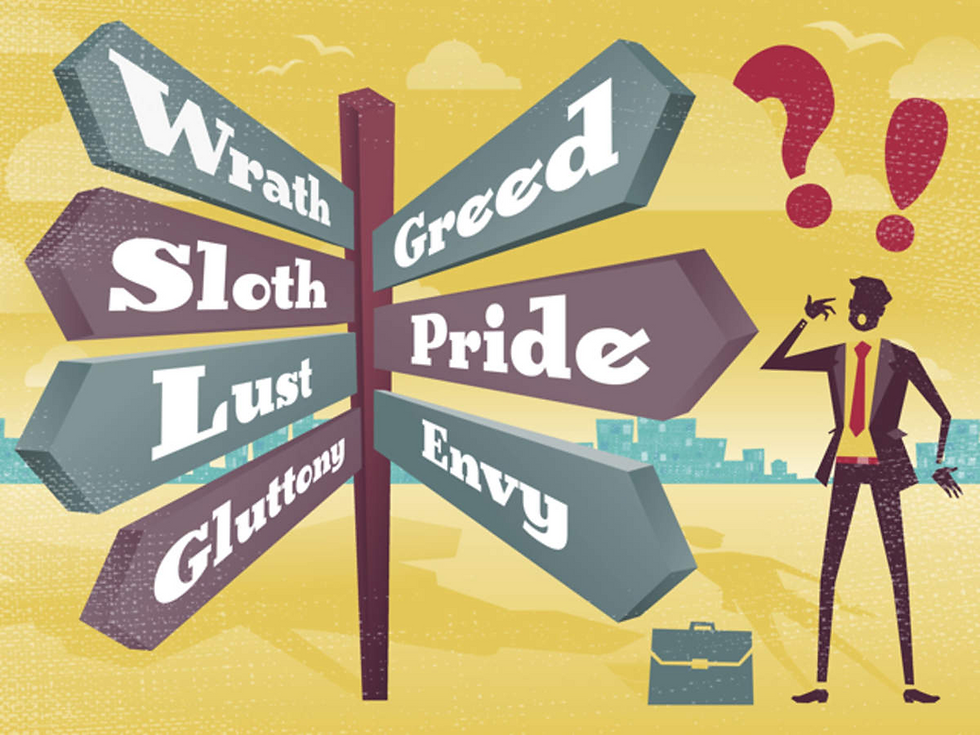Greed; What & Why?
- Ananya
- Jun 13, 2021
- 3 min read

By definition, greed is an “intense and selfish desire for something, especially wealth, power, or food”. Throughout human history, greed has been connoted negatively despite being part of human tendencies/nature. As curious minds, we often question why we feel the way we do. When greed is such an undesirable and negative tendency, why are so many of us driven to it? Throughout the past few decades themselves, significant individuals have emerged, with greed (particularly for power) being a prominent attribute. The greed for power and ‘nationalistic pride’ has often been behind the rise of many powerful dictators like Adolf Hitler. Greed comes in many shapes and forms, with several intentions, motivations, and actions attached to it.
Greed is listed as one of the Christian’s seven deadly sins, this attribute of envy is showcased and described in many sources including the Bible (where greed is rightly portrayed as a deadly sin as it “kills the possibility of a proper human relation to the Creator”), and often in differing ways. Many studies outline that greed may be a more powerful human emotion than generosity, which is something that must truly come as a disgrace to humanity and our kind. Then again we raise the question of why do we feel this sinful emotion? Our greed roots from perceiving and reflecting on ourselves in isolation from others, perhaps as an elite or superior figure. Many also argue that greed is a direct consequence of unhappiness, dissatisfaction and unfulfillment in one’s life. In order to fulfil our lives once again, we as individuals strive and struggle harder in self-interested ways to acquire the desired resources, properties, power, respect, and approval. However, this often happens at the cost of others’ contentment. In other words, and in a seemingly self-contradicting way, greed originates from too little inner self-centeredness and pre-existing oblivion or ignorance of one’s needs and desires; the aforementioned ideals lead to a realization that prompts us, individuals, to garner more for ourselves because we ‘deserve better’.
Greed is traditionally considered a sin of excess, like lust and gluttony. Throughout history, we have most frequently seen its manifestations in terms of the greed for wealth and power; the majority of today’s politicians and leaders display both kinds. Greed parallels with what Gautama Buddha attributed as “desire”; more specifically an overabundance of devotion to the material world and its profits, something that epitomizes the underlying and inherent cause of all human suffering. Combatting the world’s greed epidemic is one big step forward to assuage the deleterious effects of human suffering and global crises. If we take a look back into your history books and read about both world wars, you’d notice that greed for territory, power and wealth are the major causes; desire for imperialist expansion, better weapons and technologies to achieve security and an advantageous balance of power (excess militarism), etc. Greed is never being satisfied with what you have, it is an endless hunger. In this way, addiction too is a form of greed; addicts always seek more of what ritual or substance gives them pleasure and allows them to escape from their deeper sufferings and anxiety.
Oftentimes, being selfish can be healthy but only until it crosses the line into gluttony, sociopathy, uncontrolled narcissism, greed, egoism and self-indulgence. We live in a society that worships wealth, success, popularity and influence; it is easy to condemn, but not easy to avoid because after all, it is human nature to be greedy. Nurturing your own soul independently is far different from doing it at the expense of others. There is a right kind of selfishness, one of spirituality, self-honour and self-respect, but no right kind of greed.
For inquiries, feedback, etc. you can visit our community tab, leave a message or simply mail ingenious.theblog@gmail.com Instagram ~>https://www.instagram.com/ingenious.thepage/



Comments